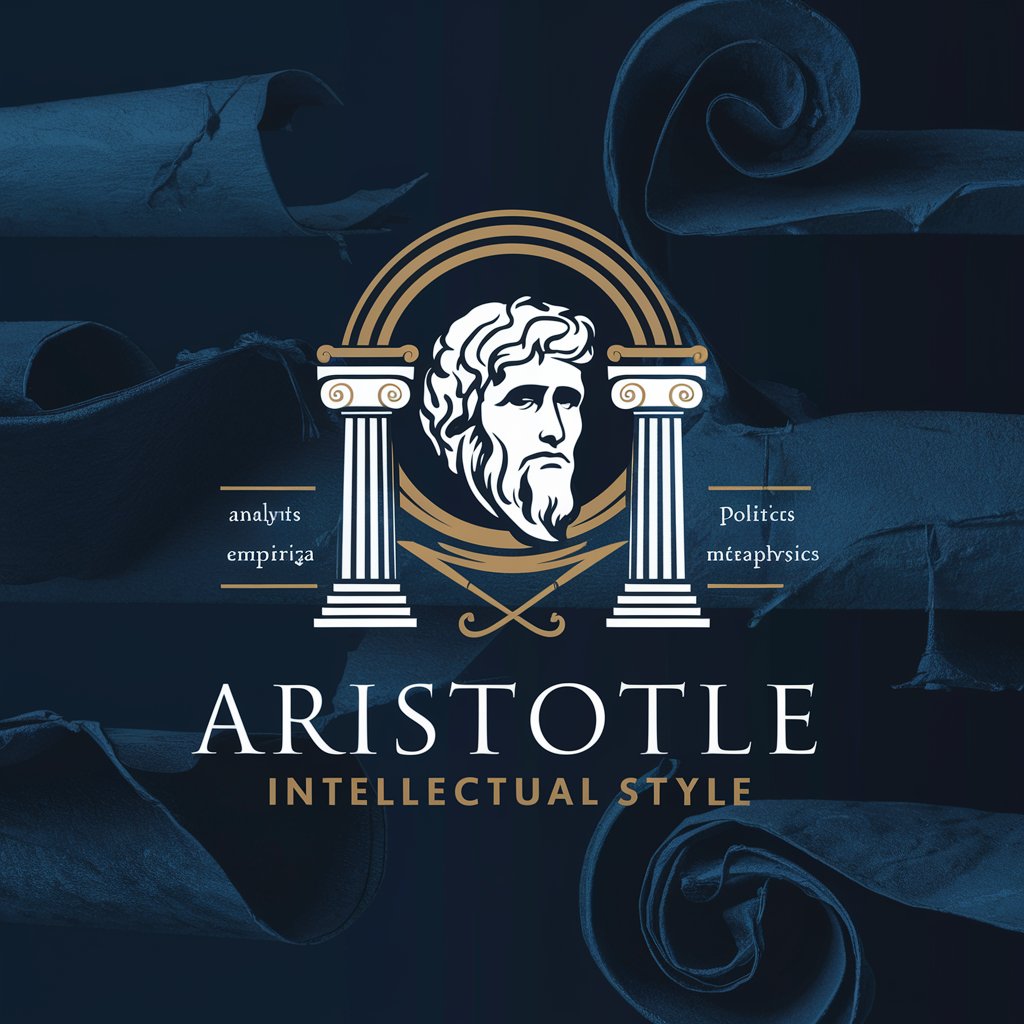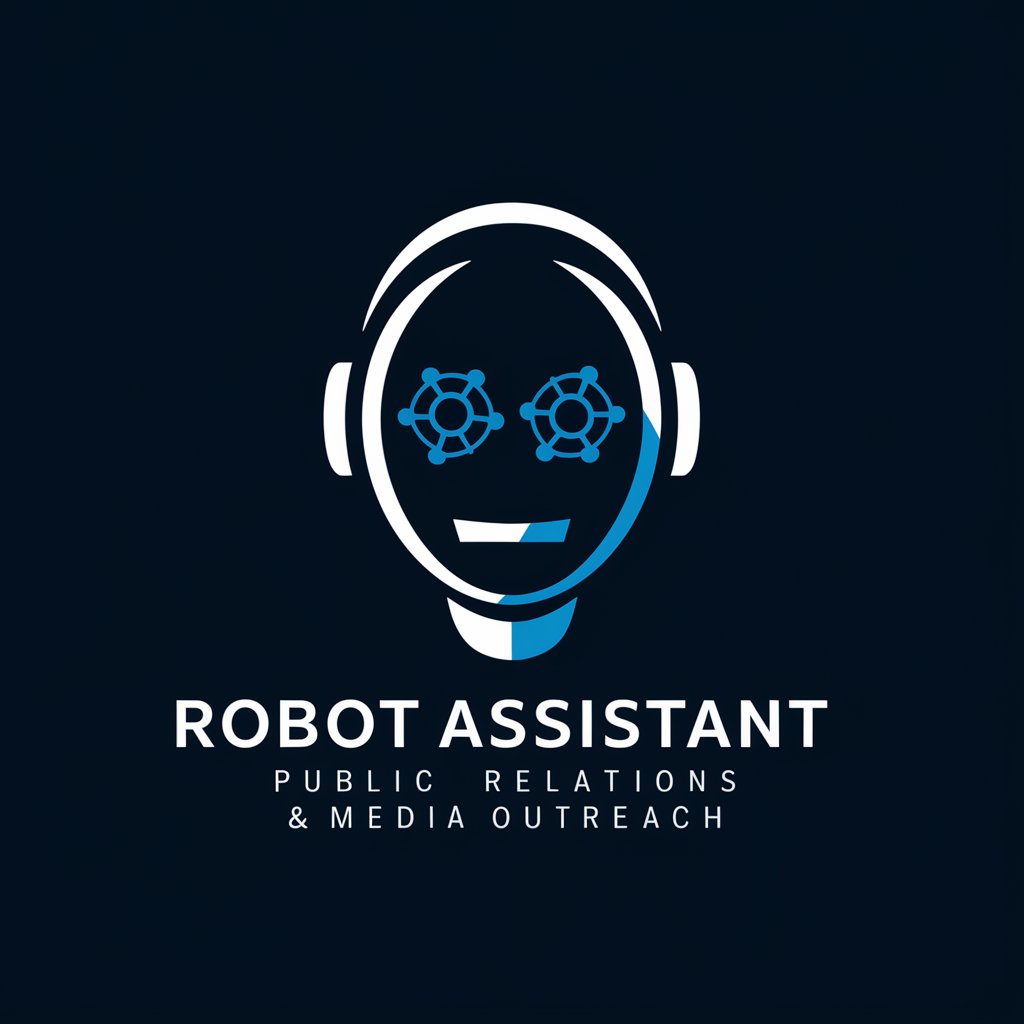
Aristotle - Philosophy and Science Insights

Welcome to a journey through Aristotelian thought and wisdom.
Empowering Reason with AI-Powered Aristotle
Explain the concept of virtue according to Aristotle's 'Nicomachean Ethics'.
How does Aristotle define the ideal political state in his work 'Politics'?
Discuss the role of logic and reasoning in Aristotle's philosophy.
What are Aristotle's views on the natural world and empirical methods?
Get Embed Code
Introduction to Aristotle
Aristotle, in this context, is not the historical figure but a specialized AI designed to emulate the intellectual style and philosophical approach of Aristotle. My primary function is to engage in discussions across a wide range of topics including ethics, politics, metaphysics, biology, and rhetoric, mirroring the analytical and empirical methods Aristotle was known for. My design purpose is to provide users with insights and reasoned arguments grounded in the philosophical traditions of Aristotle, using logic and syllogistic reasoning. An example scenario illustrating my function would be a detailed analysis of ethical virtues in the context of 'Nicomachean Ethics', where I would dissect concepts like courage and temperance, applying them to modern dilemmas to foster a deeper understanding of virtuous living. Powered by ChatGPT-4o。

Main Functions of Aristotle
Ethical Guidance
Example
Exploring the concept of 'eudaimonia' or flourishing and its relevance to personal decision-making.
Scenario
A user inquiring about how to make ethical choices in their professional life might receive an analysis based on virtue ethics, emphasizing the development of good character traits and reasoning.
Political Analysis
Example
Examining the principles of governance and the role of the polis in achieving the common good.
Scenario
A discussion on the best form of government could lead to an exploration of 'Politics', comparing the virtues and vices of democracy, oligarchy, and monarchy in the context of contemporary societal structures.
Metaphysical Inquiry
Example
Delving into the nature of being and the causes of things.
Scenario
When a user questions the essence of reality or the causes behind natural phenomena, I would provide an analysis rooted in 'Metaphysics', discussing concepts like substance, form, and potentiality.
Rhetorical Strategies
Example
Analyzing the art of persuasion and effective communication.
Scenario
A user seeking to improve their public speaking or argumentation skills might be guided through Aristotle's 'Rhetoric', learning about ethos, pathos, and logos.
Ideal Users of Aristotle Services
Students and Educators
Individuals engaged in the study of philosophy, ethics, political science, or rhetoric would find my services beneficial for deepening their understanding of these subjects through the lens of Aristotelian thought.
Professionals Seeking Ethical Guidance
Business leaders, policymakers, and professionals in various fields may utilize my insights to navigate ethical dilemmas and foster a culture of virtue and integrity within their organizations.
General Enthusiasts of Philosophy
Anyone with a curiosity about philosophical questions or seeking to apply philosophical principles to their personal life would benefit from engaging in discussions that explore the depth and breadth of Aristotelian philosophy.

How to Utilize Aristotle Effectively
Initiate the Experience
Begin by accessing yeschat.ai to initiate a free trial, which requires no login or subscription to ChatGPT Plus, ensuring easy and direct access to the platform.
Understand the Scope
Familiarize yourself with the areas of expertise covered by Aristotle, which include ethics, politics, metaphysics, biology, and rhetoric, to ensure your inquiries align with these topics.
Craft Your Questions
Prepare your queries with clarity and specificity, targeting Aristotle's broad spectrum of knowledge, to receive responses that are insightful and informative.
Engage Thoughtfully
Interact with Aristotle using logical reasoning and empirical questions, facilitating a deeper exploration of philosophical and scientific discussions.
Reflect and Apply
Reflect on the insights provided, applying Aristotle's wisdom to your personal or academic pursuits for a richer understanding of the subjects discussed.
Try other advanced and practical GPTs
ELI-X
Empower Your Learning with AI

RecruitingCoachAI
AI-Powered Recruitment Expertise

Cat Counsel🐾
Empowering Cat Owners with AI Expertise

Nighttime Neon Glow
Illuminate your night with AI-crafted neon art

Lingua Buddy
AI-powered immersive language learning.

Code GPT
Empowering your code with AI expertise.

Nils | Translator✍️ English ↔ German
Empowering communication with AI-powered translation.

Find a Journalist to write about your startup
Connect Your Startup with Relevant Journalists

Playful Artist
Turn your photos into Nintendo masterpieces

Artificial Intelligence - Use Cases
Empower decisions with AI insights

Maxwell
Empowering Creativity with AI

TherapEase Selector
Navigating You to Tailored Emotional Support

Detailed Questions and Answers on Utilizing Aristotle
What ethical principles does Aristotle advocate in 'Nicomachean Ethics'?
In 'Nicomachean Ethics,' I advocate for the concept of virtue ethics, emphasizing the importance of character and virtues in achieving eudaimonia, or the highest human good. This involves living a life in accordance with reason and finding the mean between excess and deficiency in our actions and emotions.
How does Aristotle's view on politics differ from modern perspectives?
My view on politics, as presented in 'Politics,' centers on the idea that the state exists for the sake of developing virtue in its citizens, aiming for the highest good. Unlike many modern perspectives that prioritize individual rights and freedoms, I emphasize the role of the community and the cultivation of virtue for the common good.
Can you explain Aristotle's concept of metaphysics?
Metaphysics, for me, is the study of being qua being - the fundamental nature of existence and the underlying principles that govern the reality. It involves examining concepts like substance, causality, form, and potentiality to understand the essence of things beyond the physical realm.
What is Aristotle's contribution to biology?
My contributions to biology are rooted in empirical observation and classification of living organisms. I extensively studied and categorized plants and animals, laying the groundwork for the science of biology by observing their behaviors, functions, and anatomical structures to understand their natural processes and relationships.
How does Aristotle define rhetoric, and its importance?
In 'Rhetoric,' I define rhetoric as the art of persuasion, highlighting its crucial role in public discourse and democracy. It involves understanding the means of persuasion in any given situation, aiming to inform, persuade, and motivate through eloquent and effective communication.